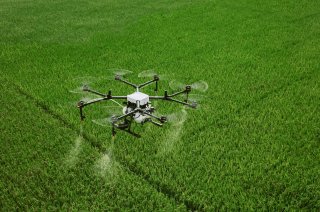 DJI-Agras from Pixabay" fetchpriority="AUTO">
DJI-Agras from Pixabay" fetchpriority="AUTO">
Exploratory Workshop on Emerging Technologies
Fostering the Adaptation of Existing and Emerging Technologies
Exploratory workshop with farmers’ representatives and policy makers
Precision Agriculture can help tremendously in responding to climate change. But this new way of farming does require a joint learn and ‘co-creation’ process in a network of consumers, society, farmers, advisors, industry, policymakers and researchers. Otherwise, farmers will not quickly apply the associated technologies. This was one of the main conclusions of the exploratory workshop ‘Fostering the adaption of existing and emerging technologies’ that took place in Copenhagen in November 2017.
Early-warning systems
About forty European experts from different disciplines and organisations, including ministries, farmers’ representatives and donors, gathered to discuss potentials of (emerging) technologies, and barriers which hinder the uptake by farmers. The potential of Precision Agriculture was seen as huge, ranging from automatic monitoring of soil characteristics and (micro)climates, to early-warning systems for pests and droughts and computer controlled stables and animals. But how to foster adoption by farmers and society?
Multi-stakeholder network
According to the participants, more involvement of stakeholders in the development, fine-tuning and adaptation of the sensors, robots, models and databanks is needed. FACCE-JPI should therefore consider to initiate a multi-stakeholder network to establish a mutual learning and co-creation environment. This network could also support FACCE-JPI in advising policy makers on relevant subjects. Other recommendations include elaborating a road-map for technology adaptation, and collecting success and failure stories to learn from.